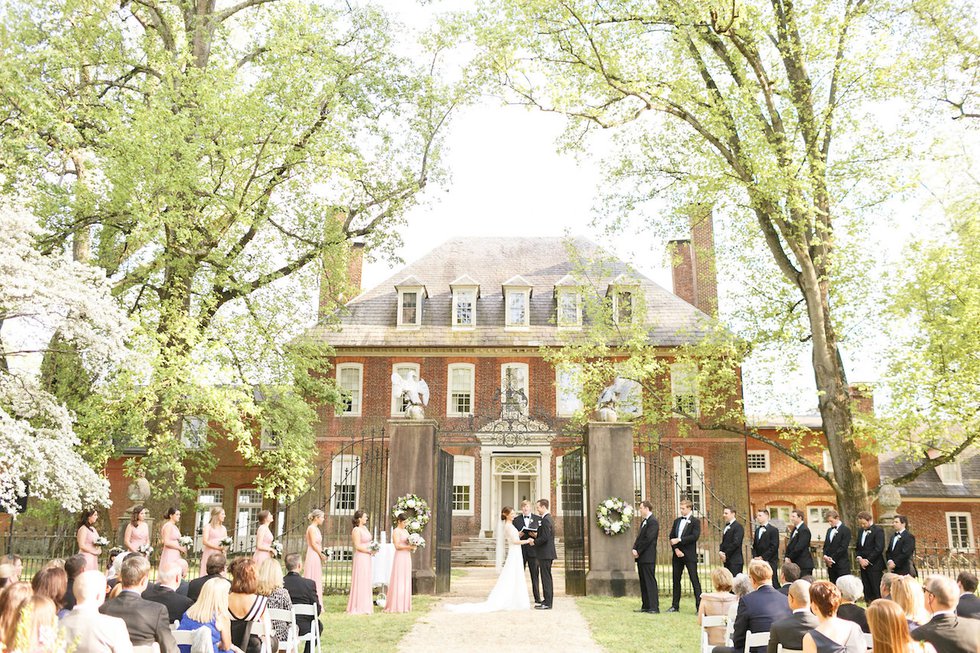The glory days of Richmond’s original movie palace.

Illustration by David Hollenbach
Sometimes we neglect to appreciate the treasures right around us, and sometimes even until it is too late to save them. For me, this hit home when I recently was asked to narrate a documentary about the Byrd Theatre for a six-part European television series called Mythical Cinemas. A great old theater, I thought, a cultural gem, but internationally significant? Hmm. That surprised me.
Of course, like anyone who grew up in Richmond or visited frequently, I had spent my fair share of time at the Byrd, the classic (now somewhat tattered) movie house in Carytown. I had attended birthday parties there and sung “Take Me Out to the Ball Game” to the Mighty Wurlitzer organ, a rousing, quintessentially American experience. Others, I learned while shooting the documentary, had had a first date there that led to marriage, and a few had even gotten hitched right there in the theater. My favorite was the groom who arrived for his nuptials beside the Wurlitzer, which slowly rises (with organist Bob Gulledge on the bench) from beneath the stage for each performance.
But more often the prized memories were of simple pleasures. One evening in 2000, my wife, Jessica, and I went to see a movie there. It was perhaps Almost Famous or O Brother, Where Art Thou, both hits that year. I don’t remember now, because we didn’t get to see it that night. It had left the day before. Now showing was martial arts master Jackie Chan’s Shanghai Noon. Jessica was not enthused. We went across the street for dinner before the show, as originally planned, and I coaxed her into giving it a try. At $1.99 a seat, I promised, we could leave whenever she wanted. She reluctantly agreed. Soon, the absurdity of Chan’s lightning fast moves and Owen Wilson’s thicker-than-oil Texas drawl had us guffawing to tears in our seats. These collective memories, along with the dedication of current manager Todd Schall-Vess and past volunteer custodian Miles Rudicill to keeping the elegant but aging theater in working order, greatly impressed the French director of the documentary, Jean Achache, who named his beautifully shot film The Byrd: A Love Affair.
The Mythical Cinemas series of six 52-minute documentaries places the Byrd in impressive company: with the Lucerna in Prague, from whose balcony (built by his grandfather) Vaclav Havel celebrated the Velvet Revolution; Amsterdam’s opulent Tuschinski Theater, whose builder came to the city from a poor shtetl, built the movie palace of his dreams, and then perished in the Holocaust; Mumbai’s Eros, a Bollywood stalwart; Havana’s Campo Amor, where erotic films flourished; and Tierra del Fuego’s Cinema at the End of the World, home of the earliest anthropological films, on the nomadic Kawésqar, who lived nearly naked on the ice.
So just how does the Byrd fit into this illustrious company? Well, for starters, it hosts the French Film Festival, which just completed its 23rd annual season, including dozens of features and shorts and the world debut of Achache’s documentary. With more than 20,000 attendees and dozens of French actors, directors and industry pros, the four-day event is the largest French film festival outside of France. Achache, who presented a film there three years ago, fell in love with the theater and chose it to represent America in the series.
Built in the Renaissance Revival style in 1929, with a balcony, two-and-a-half ton crystal chandelier, imported marble, red velvet drapes, and murals of Greek mythology, the 1,400-seat theater does a good job of that. It opened just in time to experience the end of the silent film era and to span the talkie era. And the prize inside, the Mighty Wurlitzer, built to accompany silent films, is much more than meets the eye. What you see being played down front is a control panel with keys and electrical and pneumatic switches through which the organist operates pipes, bells, horns, drums, whistles and other effects, including a car horn, sounds that are mostly created in a hidden labyrinth four stories above the stage and released into the auditorium through slats in the proscenium arch. A marimba plays from the organ console in the right box (though the harp doesn’t), and in the left, a grand piano and a xylophone. The Byrd’s magnificent factory-installed one-man-orchestra is now a great rarity. In 2004, the inventor of the Dolby Digital sound system, Ray Dolby, was so wowed by it that he donated a Dolby sound system to the Byrd.
But many more systems need attention to keep it from going the way of a few of the other theaters featured in Mythical Cinemas, which are now in ruins. If everyone who had a belly laugh or a powerful film moment will pitch in just a little, this cultural icon should inspire generations to come. ByrdTheatre.com
For a brief period it even had the Byrdettes, a group of dancing girls a la Radio City Music Hall. whose name is almost synonymous with high fidelity, and by extension the films of Hollywood








